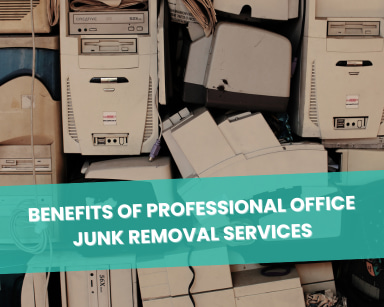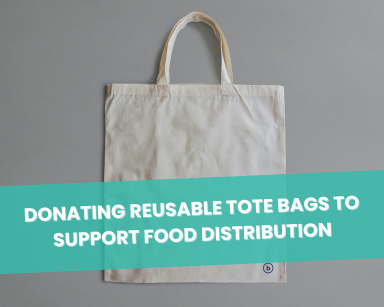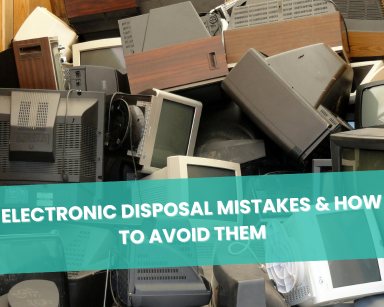Redefining Inventory Management in a Sustainable Era
In an era where e-commerce dominates and inventory management has become paramount, a perplexing conundrum has emerged for countless Amazon sellers: what to do with the mountains of unsold and returned goods? The alarming statistic from 2019 reveals that nearly 30% of all products ordered online are sent back, with a significant chunk never gracing the virtual shelves again.
But what if there was a paradigm shift from the traditional urge to liquidate Amazon inventory towards a more sustainable, community-oriented approach?
Table of Contents
What Does “Liquidate Amazon Inventory” Traditionally Mean?
The term “liquidate” in the business context generally means to sell off stock, to convert assets into cash.
Amazon sellers frequently discount or bulk-sell excess stock to free up storage and recover costs. However, this can lead to financial losses and increase environmental waste, as unsold items often end up in landfills.
The Rise of Beneficial Reuse: A More Sustainable Approach
Beneficial reuse is where the paradigm shifts. Instead of viewing unsold or returned products as mere ‘waste,’ companies like Happen Ventures view them as opportunities. Rather than directing items to landfills or quick sale liquidators, beneficial reuse aims to repurpose, redistribute, or donate items to serve a broader purpose. Not only does this reduce waste, but it also brings about several collateral benefits, which traditional liquidation doesn’t offer.
Lessons from Happen Ventures: The Blueprint for Proper Management
Happen Ventures, a pioneer in waste management, has converted the challenges of excess inventory into community-building opportunities. By donating or redistributing overstocked items to local communities and charities, they not only minimize environmental impact but also foster goodwill, effectively turning ‘waste’ into ‘worth’.
- Community-Centric Focus:
- Mutual Benefit: Happen Ventures, rather than discarding or hastily liquidating excess inventory, redirects it to community organizations. This not only supports local needs but also creates a positive brand association.
- Local Empowerment: By donating items to schools, shelters, and local charities, they actively contribute to community empowerment, transforming excess inventory into tools for local upliftment.
- Environmental Stewardship:
- Waste Reduction: Instead of adding to the growing mounds in landfills, Happen Ventures emphasizes repurposing items, significantly reducing environmental footprints.
- Eco-Friendly Partnerships: They collaborate with environmentally conscious partners, ensuring products are repurposed or recycled in eco-friendly ways, setting industry standards in sustainability.
- Innovative Repurposing Strategies::
- Workshops and Training: They hold regular workshops, teaching community members to creatively reuse items, from crafting to building essential items for households.
- Economic Upcycling: Some items are transformed into higher-value products, which are then sold, with proceeds often reinvested into community projects or environmental initiatives.
- Data-Driven Decision Making:
- Inventory Analysis: Happen Ventures utilizes sophisticated analytics to categorize and channel inventory efficiently. This ensures that items are directed where they have the maximum impact or need.
- Feedback Loop: Collaborating with NGOs and community leaders, they gather feedback on the utility and impact of their donations. This feedback is instrumental in refining their inventory management strategies.
- Building a Brand around Ethics and Responsibility:
- Transparency: One of Happen Ventures’ hallmarks is its transparency about how excess inventory is managed. Regular reports showcase their community initiatives and environmental savings.
- Engagement with Stakeholders: They foster an open dialogue with sellers, partners, and the community, ensuring everyone is aligned with their mission of beneficial reuse.
This approach allows businesses to cut waste and costs while bolstering their brand image and community relationships. Adopting these strategies has notably improved ESG scores, strengthening their market stance.
Addressing the Elephant in the Room: Why Not Just Liquidate?
Liquidation, at first glance, seems like the easy way out. However, the immediate financial gain is often short-sighted. Traditional liquidation rarely considers the long-term brand image or the environmental implications.
On the other hand, beneficial reuse, as employed by companies like Happen Ventures, offers a holistic solution.
This strategy reduces environmental waste, boosts a brand’s reputation, strengthens community ties, and offers tax advantages.
Converting Amazon Overstock into Profitability through Beneficial Reuse
Imagine a scenario where your Amazon overstock, instead of being a liability, becomes a tool for community engagement and brand enhancement. Beneficial reuse makes this possible.
By donating, repurposing, or redistributing excess stock, businesses can tap into a reservoir of untapped benefits. From fostering loyalty among eco-conscious consumers to potential tax deductions, the advantages are manifold.
Proper Management of Returns for Beneficial Reuse
Managing returns is crucial for ensuring their effective reuse. The following steps can maximize the potential of returned items:
- Inspection: Checking for damage or defects to ascertain suitability for donation.
- Categorization: Classifying goods by type and condition aids in aligning them with suitable charities or community needs.
- Collaboration: Teaming up with entities like Happen Ventures, who specialize in repurposing returns, ensures that products reach those who need them most.
Envisioning the Future: The Larger Impact of Adopting Beneficial Reuse
As we stand at the crossroads of e-commerce growth and environmental challenges, embracing beneficial reuse is more than just a good business strategy—it’s a necessity. With increasing awareness about sustainability, businesses that adopt this approach will not only gain a competitive edge but will also play a part in shaping a more responsible and sustainable e-commerce ecosystem.
Conclusion:
The narrative surrounding inventory management is changing. Beneficial reuse offers an avenue for businesses, especially Amazon sellers, to turn challenges into opportunities. It’s time for businesses to move beyond traditional liquidation and explore the multi-faceted benefits of a sustainable inventory management approach.










